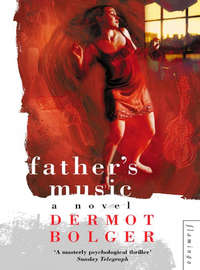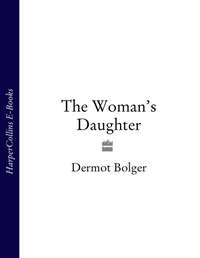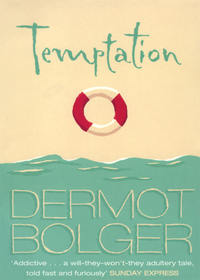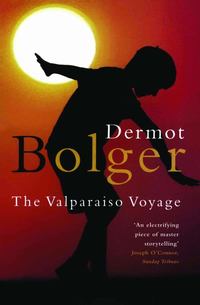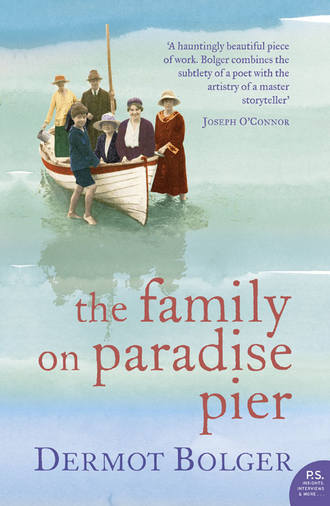
Полная версия
The Family on Paradise Pier
‘We all make mistakes.’
‘The Commodore has returned from service off Murmansk this evening,’ Dr O’Donnell said mildly. ‘We can vouch for these young people. Kindly let them pass.’
‘Damned hard luck about the withdrawal of the expeditionary force from Russia, sir,’ the sergeant addressed Mr Ffrench. ‘I hear the Bolsheviks are savages.’
‘On the contrary,’ Mr Ffrench replied, ‘the Bolsheviks are men of principle, which is more than can be said for the White Russians we were shoring up, for whom I could not give a horse artillery hoot. Our retreat was bliss for me.’
The sergeant searched Mr Ffrench’s face as if this was a black joke that he was missing. His tone stiffened.
‘I lost a cousin there, at the battle on the Ussuri River.’
‘I’m sorry to hear that,’ Mr Ffrench replied. ‘Good men died needlessly. I made it my business to write to their widows.’
‘He was just twenty-two,’ the sergeant said. ‘He fought bravely. His kids will be proud of him. What did you do?’
‘I fought my best to ensure that as few of my men as possible died. I don’t have children yet to be proud of me. If I had I might have been truly brave for their sake and joined the Bolsheviks to fight for the liberty of all men.’
The sergeant looked at his men who were all watching this encounter, then, very deliberately, he spat and gave the order to board the truck. He climbed in without speaking. Headlights lit up the dark road as it pulled away. The darkness was more intense after it was gone.
Mr Ffrench approached the car.
‘My word, you pair have got so big. Come down tomorrow and we’ll have a picnic on the pier like old times. Maybe you’ll give the doctor a lift as far as Killaghtee church.’
Mr Ffrench sounded relaxed and jovial, but Maud wondered if when she woke tomorrow she would suspect that his conversation with the sergeant had formed part of a bizarre dream. Mr Ffrench shook their hands, then strolled back up his avenue. The doctor got into the back seat and Maud drove on.
‘Is Mr Ffrench feeling all right, Doctor?’ Maud asked.
‘I’m afraid that diagnosis is out of my league,’ the doctor replied. ‘Our neighbour appears to have embraced a new faith. He has spent the evening preaching the benefits of communism for all mankind. I have not heard such ardour since travelling medicine men used to pontificate on the virtues of their elixirs at fair days, curing everything from croup to baldness. In Mr Ffrench’s favour he makes no claim that communism will cure either. A few weeks’ rest should sort him out. Ffrench always took up hobbies with enthusiasm. Reading between the lines, it seems that he was relieved of the command of an assault on Archangel. It was given to a well-connected young English officer whom the Admiralty were keen to blood. I put Ffrench’s zeal down to pique, but we old doctors are a cynical breed. Here will do fine, Maud. I’m glad you recovered your motor.’
Maud stopped to let him out.
‘How did you know it was missing?’
The doctor laughed. ‘Who doesn’t know? Good night.’
Brother and sister drove on and entered the village. Two men leaned on the low windowsill at MacShane’s pub to watch the car go by. One gestured a silent greeting. Only after they passed however did Maud wonder if it was actually a greeting or had his fingers been cupped in the shape of an imaginary revolver. She didn’t know. Indeed, as she turned into the lane to the coach house Maud realised that there was little she was truly sure of any more.
FIVE The Boat
Donegal, August 1920
Nobody else called this the Fairyland Road, but in her mind Eva never referred to it by any other name. It was a rough track over bogs and rocks that cut the trip to Killybegs by two miles. Sometimes at dawn she loved to sketch here, knowing there would be no traffic and rarely another person to disturb her. But it was barely passable to cycle on as she had discovered with Jack this morning, going to the Killybegs Regatta when they struggled to lift their bicycles over exposed rocks where the track had vanished. Still, she was happier to travel independently rather than be squashed between her boisterous brothers in the battered motor with the roof tied down with rope.
This morning, Mother had seemed perturbed at allowing the recently demobbed twenty-two-year-old New Zealand officer to accompany her alone down this isolated track. But – as if to encourage Eva’s growing friendship with Jack – her brothers and, more reluctantly, Maud, had all expressed a fierce determination to travel by motor.
Jack looked slightly comic now, as his long legs struggled to cope with Maud’s small bicycle, but the family was lucky to have two bicycles left. Eva dismounted as they reached another outcrop of rock. Her wicker basket was crammed with eggs purchased from an old woman who resembled an amiable witch and kept eggs for sale in a chamber pot under her box-bed in a tiny cottage near the road. Cook would be glad of them for tonight’s regatta party. Jack also dismounted to offer Eva a hand, but she blushed and said that she would manage. Twice already she had taken his hand at awkward parts of the track and twice he seemed hesitant to let it go.
They discussed the afternoon regatta in Killybegs where crowds had lined the harbour walls. Eva explained how British submarines based there during the war had created great local excitement. She was careful when mentioning the war, having never ascertained how Jack received his injuries which required such a lengthy recuperation. Two months ago Father had acceded to a request from an army friend that the family might take in Jack for some rest before he undertook his long return voyage to New Zealand. Luckily Cousin George had been leaving after a summer visit, so it was agreed to offer the young officer his room. When asked to inscribe the visitors’ book on his last day Cousin George had listed an entire alphabet, with his Q & R causing particular hilarity. Q is for all the impossible QUESTIONS discussed at dinner. R is for the RESULT: indescribable babble.
The New Zealand officer was initially bewildered by the Goold Verschoyles’s indescribable babble on the night he arrived. Mother – engaged in ‘table turning’ with her psychic friends in the drawing room – had suggested that Father play a march on the piano to see what the spirits did. As Eva had answered the front door and led Jack into the room, the table started to move by itself in time to the jaunty music while Mother’s friends with outstretched hands linked across it, needed to stand up to keep pace with its swaying. Father was impressed, although her brothers’ disbelief remained unaltered. But that night Eva and Maud had been more preoccupied with their new arrival than with any occult manifestation.
The sisters had expected a pale invalid, perhaps mildly deranged like several local ex-soldiers who had been exposed to nerve gas and were prone to fits. But apart from a slight limp, Jack seemed in perfect health. Eva did glimpse a scar down his leg on the first occasion when Jack accompanied Art and her to the pier beside Mr Ffrench’s house. The tide had been in, with high waves washing over the stones as they splashed down the pier to jump feet first into the sea. The water was deep and exhilarating, so intensely cold that for several seconds after each jump Eva feared that she would never surface again. But excitement kept her warm as she repeatedly clambered out to do it again, suddenly conscious of how tightly the bathing suit clung to her eighteen-year-old body.
She had never imagined that anyone could jump higher than Art, but after several timid attempts, Jack suddenly charged through the spray to launch himself forward with a roar that scared Eva because she instinctively knew this was how he had been trained to bayonet German soldiers. Jack never uttered such a yell again as if his leap off the pier had exorcised some terrible vision trapped in his heart. But afterwards Eva never used her nickname for the pier again as if the sight of his muscular body had altered her innocent vision of paradise.
Indeed, Eva never really thought of him as a British soldier until the night, soon after his arrival, when loud knocking disturbed the house. Father was away. Eva and Maud had looked down to see armed men outside. The IRA guerrilla campaign was ongoing, with hardened British auxiliaries ransacking villages and shooting bystanders in reprisals. Little of this had filtered into Dunkineely since their motor was stolen, but Maud understood the danger and had whispered for Eva to wake Jack and smuggle him out the back door. Eva had often visited the spare room when Cousin George slept there, but to enter it with a stranger in the bed felt different. Jack’s shoulders had been bare and for a terrible moment Eva feared that he was naked. Jack woke once she touched his arm. His hand covered her fingers as he gazed up in a cryptic way she could not understand. He seemed unsurprised at her presence.
‘Armed men are here,’ Eva had whispered. ‘They may have come for you.’
‘Turn your back.’ Eva heard him slip into his trousers.
He went to his window to look down at the coach house and she touched his sheets that retained a warm scent of sleep and dangerous masculinity. Jack had reached back for her hand, his touch exciting and excusable in the context of leading her onto the dark landing. She had wanted him to hurry down the back stairs but he leaned over the banisters to watch Maud open the door and Mother exclaim: ‘Oh, do put those guns down, I can’t stand guns.’
‘Sorry, mam,’ Eva had heard a man reply. ‘Lower the guns, lads. We’re after bicycles. We need two.’
‘Then only two of you come through,’ Maud had said with such authority that only two men entered the hallway and were led by Maud down towards the kitchen. Jack drew Eva back into his room to watch the men remove bicycles from the coach house and mount up with rifles on their backs before cycling beyond a ring of light cast by the paraffin lamp which Maud held aloft. Eva had detached her hand from Jack’s grasp as her sister re-entered the house.
‘That was a spot of excitement, what?’ Jack had said quietly. ‘Was your bicycle taken?’
‘No.’
‘If it ever is I’ll happily carry you around on my shoulders. Good night, Eva.’
For one moment they had stood so close in the moonlit bedroom that Eva half-feared and half-hoped Jack would kiss her. He might have done so had she not turned to run barefoot back to the safety of her childhood bedroom.
No such sanctuary was now available on this rock-strewn track however as Eva remounted her bicycle, checking that none of the eggs wrapped in newspaper was broken. Jack was behind her, so close that her back was colonised by goosepimples. Eva was intently aware of his breath and could almost feel his fingers though his hand was inches away. She knew that he was about to touch her shoulder and couldn’t decide if she wished him to. She was used to school pals of Art who played tennis in white flannels and brought her for bicycle rides. But their prime focus had always been Maud who was prettier and more mature, well versed in accepting and deflecting their attentions with a confidence Eva felt that she could never master. At twenty, Maud had fully supplanted Mother as head of the household. She trained the maids and issued instructions, while Mother gardened and attended to her bees in an enormous black-veiled straw hat. Eva would understand Jack being besotted with Maud, but he seemed to have chosen her instead, to Maud’s thinly concealed surprise. Eva turned to face him, suddenly bold.
‘Slowcoach,’ she laughed. ‘I’ll race you to the crest of the hill and beat you too.’
Eva began to pedal furiously, knowing that with his limp he might have trouble catching her at first but would soon gain ground. She glanced behind and slowed down, for the sake of the eggs. Jack was laughing, straining in the effort to catch her and Eva realised with a shock that she loved him. Yet she loved him most at moments like this, when she could feel Jack’s love without him being able to reach her, when his love made her feel grown-up without forcing her to fully become an adult. Eva waited till their wheels nearly touched, then pedalled faster, loving the wind in her hair, the scent of heather and distant view of Donegal Bay. Mother had insisted that Art wait for them where the track rejoined the Killybegs road, but just now Art seemed as far away as New Zealand. Everything felt distant in the exhilaration of this chase – the regatta they had left, this evening’s house party, the unrest in Ireland and the aftermath of war that brought Jack into her life.
Since the night the bicycles were taken, the IRA never returned and even die-hard Republican villagers accepted that Jack had nothing in common with the Black and Tans in Crossley Tenders who often invaded the main street. Indeed Jack had even allowed himself to be lined up and roughly frisked by drunken British soldiers without revealing his former military rank. His only contact with any ex-officer was with Mr Ffrench, who steadfastly refused to answer to his naval title when dealing with British squaddies, though he seemed to enjoy it when local people affectionately addressed him as ‘Commodore’.
War had changed the Ffrenches. Mr Ffrench’s favourite topic at dinner now concerned how the White Russians were a decadent dictatorial class and his pride at having done everything short of being court-martialled to aid the revolutionary Bolshevik victory. But such dinner parties were infrequent, because relations between Father and Mr Ffrench seemed strained compared to the days when they wandered for miles on his aeroplane cart. The Verschoyle children still enjoyed the run of Bruckless House and pier, often helping Mr Ffrench in his new passion for making handcrafted wooden cabinets. But Father argued with seventeen-year-old Art over all the time he spent in Ffrench’s study, lined with maps of Russia and where a tame jackdaw flew freely about since having his wing mended by Mrs Ffrench. Father never criticised the communist tracts that Art and Thomas often brought home from Bruckless because he believed in open discussion. But Eva sensed his difficulty in dealing with some of the assertions Art had started raising.
Not that Eva paid attention to their political arguments, because lately all her attention was focused on Jack and most of his attention on her. As they cycled now she knew that she would not be able to keep ahead of Jack for much longer. This chase that she had initiated worried her because it had to lead somewhere. Jack was riding abreast suddenly, both bicycles wobbling dangerously on the narrow track. He reached across to grasp her handlebars and she had to brake, slipping slightly in the dust. She halted, suspecting that several eggs had cracked. He was beside her, his hand gripping her bicycle. Eva wondered what acts that hand had committed during the war and what it might do alone with her now.
‘You caught me,’ she said.
‘Have I?’
Eva knew suddenly that he was not going to kiss her. Jack’s eyes were serious. She wanted to kiss him, purely to stop him saying whatever he meant to say because Eva sensed that it was about to change everything.
‘I’m going away,’ he announced soberly.
‘Where?’
‘New Zealand obviously. At least I have written to my doctor to say that I’m ready for the voyage…if I wish to go…if there’s nothing to keep me in Ireland. That is what I need to know. Is there?’
‘Of course,’ Eva replied blindly. ‘We all love having you.’
‘Do you?’
Eva blushed, not wanting to admit what she felt, even to herself, because it meant having to leave so much behind. ‘Yes. I only ever had younger brothers before.’
She knew that the words were wrong, not what Jack wished to hear or she wanted to say in her heart. Maud would know the right words.
‘I’m not – I don’t want to be – your brother,’ Jack said firmly. ‘Is that all you’re seeking? A big brother?’
‘It’s more than that,’ Eva insisted. ‘I like us being together. I love when we lie in hayricks and you read me poems like Father, only different.’
‘I’m not your father either. Look at me.’ His voice was quiet, his hand steadying her bicycle. ‘Is there anything you might like us to do that does not involve your precious family?’
‘I liked the midnight picnic last week when we all sailed out to the Green Island,’ Eva admitted shyly. ‘I liked it when I decided to swim alongside the boat and you dived in and swam beside me. Just us two in the water.’
She wanted to add how she had liked touching his bare shoulder on the night the IRA came. She liked how he shook his wet hair when climbing from the water at Bruckless Pier. She liked the accidental glimpse she had caught of him drying his naked body by the shore, unaware that she could see through the trees.
‘I liked us being in the water too,’ Jack said. ‘Just a few inches between us and nobody able to see in the moonlight. That sort of moment might make a man not wish to return to New Zealand or make him bring somebody with him. You’d love New Zealand, Eva. It’s bigger and more beautiful than here. And there’s no trouble, no armed gangs, just people getting on with life. Childhood doesn’t last for ever. What do you want?’
‘I don’t know,’ Eva replied, scared. Mother frequently scolded her for spending too long in her studio, dreaming about the future instead of actually planning it. Jack sighed.
‘None of your family know what they want. Look at Art.’
‘What about him?’
‘This place is like the Garden of Eden and he will inherit it all, but instead you’d swear he was in the Garden of Gethsemane. Especially with that renegade Ffrench filling his head with nonsense.’
‘Mr Ffrench is nice,’ Eva protested.
‘It’s easy for Ffrench to entertain notions without children to pass his wealth on to. I want children and want to work hard for them. Do you want children, Eva? I don’t mean this year or next, with you being so young and having seen so little. I mean in time.’
‘Yes,’ she replied, because he had qualified the question so it did not threaten her. But she hated Mr Ffrench being criticised, like she hated the arguments always simmering now at family gatherings.
‘I’m glad you said that.’ Jack’s hand moved from the handlebar to grip her fingers alarmingly. ‘Give me hope and I’ll stay. I’ll have the slowest recuperation in medical history. Even at the risk of an IRA bullet I’d walk barechested across Donegal if I stood a chance with you. Do I?’
‘I’ve said I like you,’ Eva replied.
‘What does that mean?’ Jack pressed.
‘Art will be wondering what’s keeping us.’
‘He knows damn well. He may be an apprentice saint, but he’s no fool.’
‘What do you want from me?’ Eva was desperate to escape, yet made no effort to free her hand.
Jack took a deep breath, trying to be patient. ‘Nothing you don’t want to give. Your mother says you’re not ready and I know it would be better if we met in a few years’ time, but we haven’t got that luxury. I don’t know where I’ll be then and you don’t know what type of country you’ll be living in if the house isn’t burnt over your heads.’
‘They wouldn’t burn our house,’ Eva protested. ‘They know us.’
‘You don’t know them.’ He paused. ‘Listen, we can’t talk with a chaperone waiting over the hill. You loved swimming out to the island, didn’t you?’
‘Yes.’
‘Then do it again tonight. I’ll borrow Ffrench’s boat. He doesn’t believe in private property any more anyway. Meet me on the Bunlacky shore at midnight and we’ll have our own picnic on the island.’
‘That sounds magical,’ Eva said. ‘Can I bring Art?’
‘For God’s sake, Eva.’ Jack put his hand to her cheek and made her stare into his face. ‘Stop playing at being a child. I want us to visit the island alone as man and woman, if you want that too. Do you understand?’
‘Yes.’ But Eva didn’t want to understand. She wanted to remain poised on the cusp of this new world without having to leave the safety of her old one.
‘Not that I’d do anything improper,’ he added. ‘You know I’m a gentleman. I just need us to talk alone with none of your family having seances or political debates or playing polkas or simply being so damned cheerful. I need a sign that you understand and return my feelings. I’m willing to wait if there is hope but I’ll not be played as a fool.’
A shout disturbed them. Art had grown impatient and come to check on them. Jack quickly released her hand. His fingers had not been rough but Eva still felt their touch and knew that she was blushing. She waved to Art, with a gaiety she didn’t feel.
‘Are you okay?’ Jack asked quietly.
‘I’m fine,’ she whispered.
‘So, should I steal Ffrench’s boat or not?’
‘I’ll bring my bathing costume. You can sail and I’ll swim the last stretch.’
Eva mounted her bicycle to pedal up the slope towards the safety of her brother. Jack followed more slowly. Both dismounted when they reached Art so that they could unhurriedly walk home together with Eva in the middle, between the two men she liked most in the world after Father. Jack was less frightening in company. He was in wonderful form as they sang and swapped snatches of poetry. If Eva had a choice she would have continued walking like this for ever, but that was a child’s wish and, glancing at Jack, she knew that she was a woman.
The house was packed when they reached home and the drawing room carpet had been taken up for dancing. Mr Barnes, manager of the Royal Bank in Donegal town, had transported the Goold Verschoyle family silver from his vault despite his misgivings about taking such a risk in these times. His three sons were here and the eldest boy was playing tennis against Maud in the garden. Through the window Eva watched Maud gracefully return a volley with one hand holding down her straw hat. Thomas talked to Mr Barnes in the grown-up way which came naturally to him, while ten-year-old Brendan raced in and out of the open front door pursued by a clutch of village children in a game that Eva couldn’t fathom but would have loved to join in. Male voices came from Father’s study and Art joined the men there like poor Oliver Hawkins had been allowed to do the summer before he died. Mr Ffrench was also in there with the rector whose son always attended their musical evenings and sang I Love Thee, Come Forth Tonight.
The kitchen would be dangerous territory, with the flustered cook complaining that in any other house the mistress would have some notion about how many were likely to arrive for dinner. Mother would be trying to soothe her, with Mrs Trench, the gardener’s wife, also there to help. Maud sometimes whispered that Art was sweet on Mrs Trench’s only daughter, but Mr Trench – a man of few words – had once announced that he would twist the neck off any boy seen near her. Art’s social position would not save him from Mr Trench’s temper if he were over-familiar with the girl. Thinking of this made Eva wonder where Beatrice Hawkins was now. The Great War had changed everything. Tonight’s gaiety would be tinged by absences. Eva and Maud often lay awake discussing the dozen young men from nearby Protestant families butchered in France and Belgium, with Mother despairing that so few eligible locals remained for her daughters to consider marrying. Eva wondered how long a boat took to reach New Zealand and what it would feel like to be a bride. The possibility would have been exciting were it not suddenly tangible.
She went to answer the front door where two local women wearing shawls stood with a donkey cart loaded with whiting, herrings and sprats, looking to sell them at two pennies a plateful. Eva explained that tonight was a special dinner. As the women moved off, she checked the basket on her bicycle and found that only two eggs were broken. Carefully she removed them while Brendan ran through a flock of geese to offer to ride her bicycle around to the coach house.
Eva braved the chaos of the kitchen to give Cook the eggs. The babble there was too much for her, so she slipped out to her studio where she could think.



